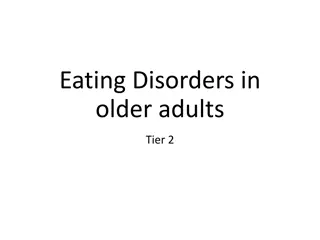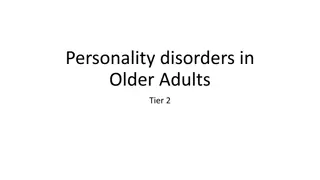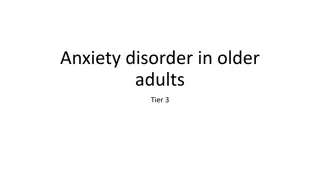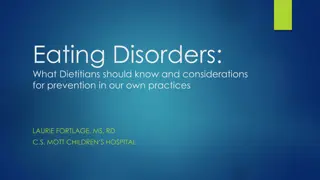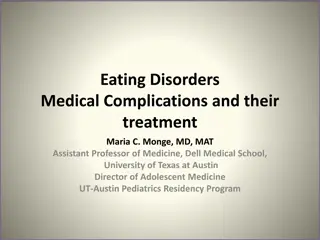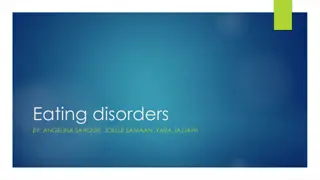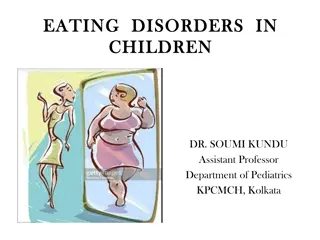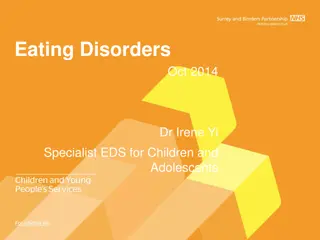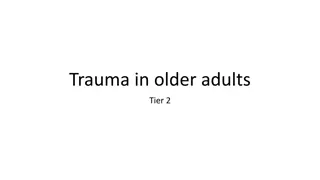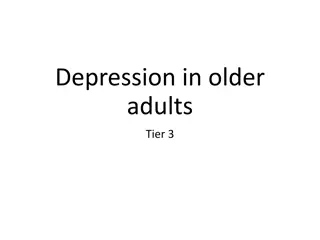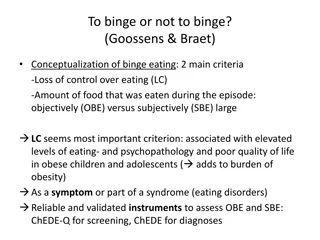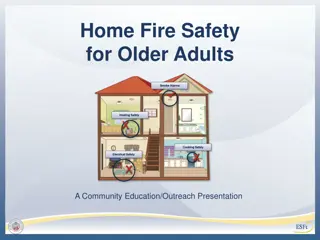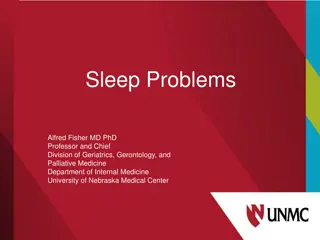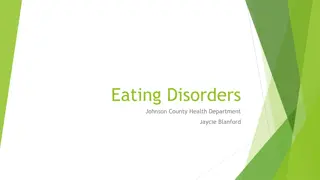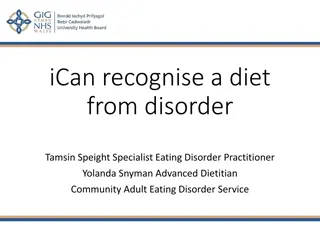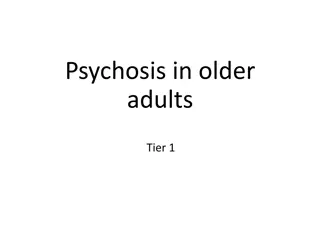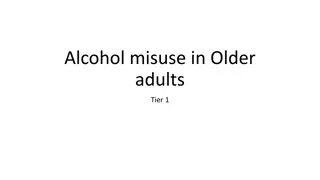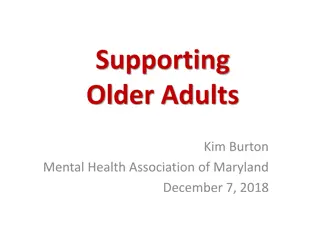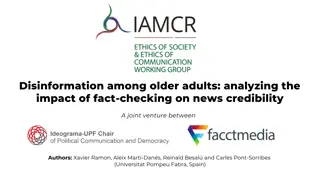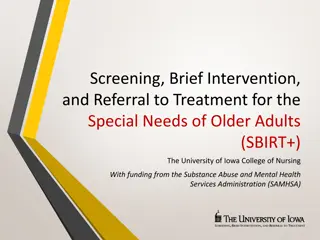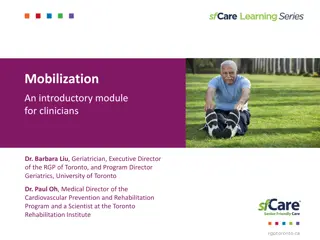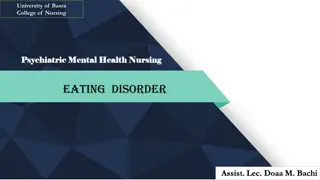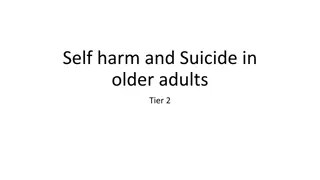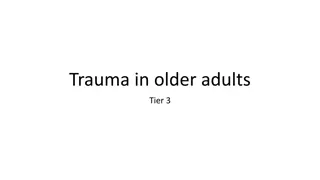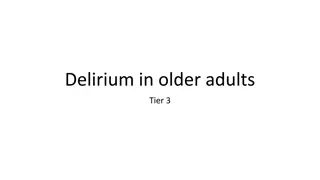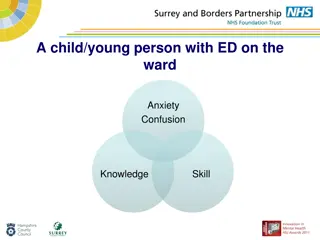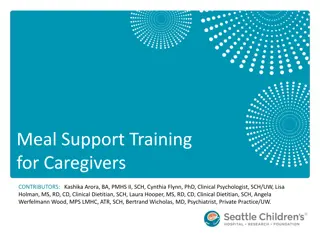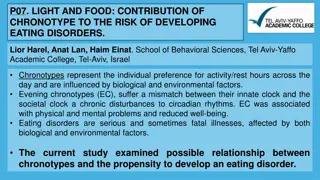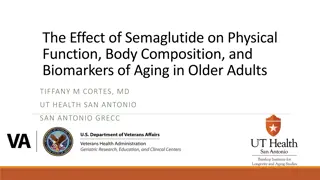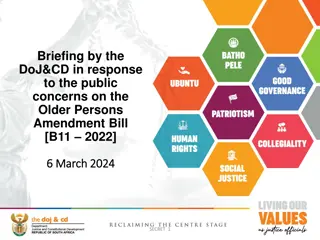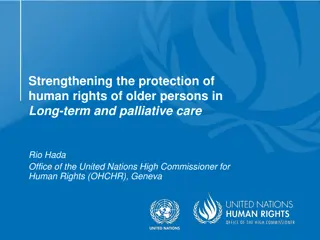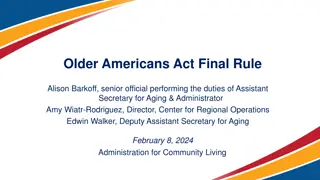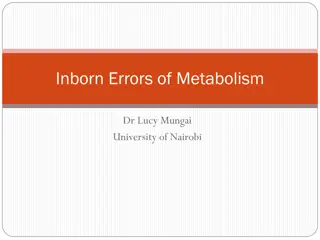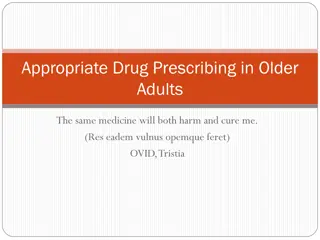Understanding Eating Disorders in Older Adults
Eating disorders in older adults can have serious physical and mental health consequences. Recognizing symptoms such as weight loss, phobia, and vomiting is crucial. Treatment is available, and it's important to differentiate between eating disorders and other causes of weight loss in older adults to ensure proper care.
Download Presentation

Please find below an Image/Link to download the presentation.
The content on the website is provided AS IS for your information and personal use only. It may not be sold, licensed, or shared on other websites without obtaining consent from the author. Download presentation by click this link. If you encounter any issues during the download, it is possible that the publisher has removed the file from their server.
E N D
Presentation Transcript
Eating Disorders in older adults Tier 3
Eating disorder An eating disorder is when the person has an unhealthy attitude to food which can over their life and make them ill. It can involve eating too much or too little, and/ or becoming obsessed with their body and shape There are treatment that can help recovery from an eating disorder Men and women of any age can get an eating disorder, but they most commonly affect young women aged 13 to 17 years of age. https://www.nhs.uk/conditions/eating-disorders/
Types of eating disorders Eating disorders include anorexia nervosa bulimia nervosa binge eating disorder other less common ones They have significant physical and mental health consequences, even life-threatening ones.
Symptoms of eating disorder Eating disorder should be considered in older adults if there is Weight loss Weight Phobia Vomiting
Other signs and symptoms of eating disorder an increase or decrease in weight over a short period changes in behavior e.g. disappearing after a meal, using the toilet immediately after eating use of laxatives, diet pills or diuretics a desire to eat alone avoiding meals rigid rituals and routines around food and exercise distorted body image physical signs such as excessive hair loss, dental damage, heart or gastrointestinal problems anxiety and depression
Types of eating disorder Older adults with eating disorder belong to three different categories those with a chronic eating disorder from a much younger age, those that who had been treated and the disorder has recurred, those that first develop eating disorder in later life.
Causes of weight loss in older adults Other causes of weight loss in older adults must be ruled out before a diagnosis of eating disorder is made: Physical health Gastrointestinal tract problems, cardiovascular problems, malignancy, dysphagia, poorly fitting dentures Polypharmacy may cause lack of appetite Mental health: depression, dementia Socio economic factors
Risks for older adults with eating disorder Anorexia older adults are at higher risk of bone fractures, heart rhythm problems and infection Bulimia nervosa higher risk of cardiovascular problems and gastro intestinal problems (especially those who overuse laxatives) Increased frailty and falls can be due to the muscle wasting, dizziness, cardiovascular problems Increased incidence of cognitive impairment and confusion
Management and Treatment There is always challenge in treating chronic eating disorders especially in older adults Treatment of comorbid physical and mental illness is important Both pharmacological and psychological treatments are essential Treatment of older adults with eating disorder should include liaison with eating disorder services, gastroenterology team/geriatricians and old age psychiatry services. Consider the risks of refeeding syndrome when treating older adults with eating disorders Old Age Psychiatry services are not always geared to identify, manage or treat these disorders - joint working should be encouraged Resource: Beateatingdisorders.org.uk
References Disordered eating in older people: Some causes and treatments - Volume 23 Issue 5 - Victor M. Aziz, Danika Rafferty, Isabella Jurewicz www.cambridge.org


